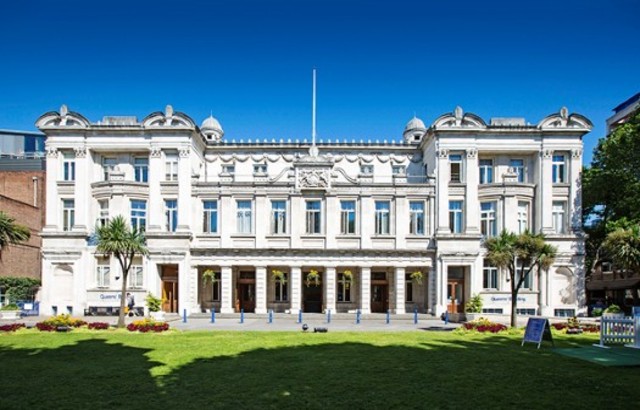Making a difference in East London and beyond
Professor Alison Blunt, Deputy Vice-Principal for Impact (Culture, Civic & Community), shares recent news about KEF2 and the National Civic Impact Accelerator (NCIA)

Queen Mary Building
We’ve recently had two major and positive announcements related to Queen Mary’s civic, public and community engagement work – both tangible examples of our commitment to making a positive difference in East London and beyond.
One was the news that the £3.7M National Civic Impact Accelerator (NCIA) led by Sheffield Hallam University – with Queen Mary, the National Coordinating Centre for Public Engagement, the University of Birmingham and the Organisation for Economic Co-operation and Development as partners – has been funded by Research England.
The three-year NCIA programme will develop civic leadership, maximise local social and economic impact and help to address national and global challenges. It will do so by collecting evidence and intelligence of what works, sharing civic innovations, and developing the frameworks and tools to provide meaningful, measurable civic strategies and activities. Queen Mary’s Centre for Public Engagement will be leading a strand of work on equitable partnerships as part of the NCIA.
In the joint news release about this exciting development, Dr Philippa Lloyd, Queen Mary’s Vice-Principal (Policy and Strategic Partnerships) and chair of the NCIA Advisory Board said: “We are delighted to be working with our partners on this ambitious project to enable universities to deliver impactful civic engagement initiatives. At Queen Mary, we were pleased to launch our Civic University Agreement earlier this year, and this programme will ensure we have a strong evidence base on which to build. We know how vital it is to collaborate with local partners and across the sector and are looking forward to contributing to this work.”
As our Civic University Agreement says, no university can act in isolation. We have a deep and proud connection with East London, and we commit to being a good, collaborative neighbour. Indeed, the NCIA programme is all about collaboration, and how we can sustain this as an important part of our 2030 Strategy to be the most inclusive university of its kind, anywhere.
This NCIA news came soon after the publication of the results of Research England’s second Knowledge Exchange Framework (KEF) which showed clearly that Queen Mary has retained its position as a leader in knowledge exchange. This positions us among the top 20% - the highest quintile, representing ‘very high engagement’ - of English universities in the category of public and community engagement, alongside others such as research partnerships, and IP and commercialisation.
I hope to keep everyone updated on next steps and progress of the NCIA. But in the meantime, it’s wonderful to share with you these two recent and connected examples of the success we are seeing for our civic, public and community engagement.
Related items

24 February 2025